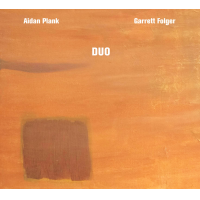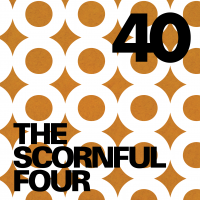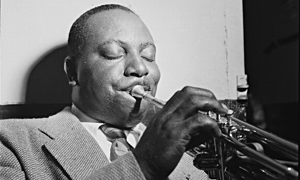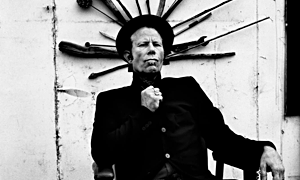Home » Jazz Articles » Book Review » Apex Blues tackles legacies of Jimmie Noone and Jimmy Noone Jr.
Apex Blues tackles legacies of Jimmie Noone and Jimmy Noone Jr.
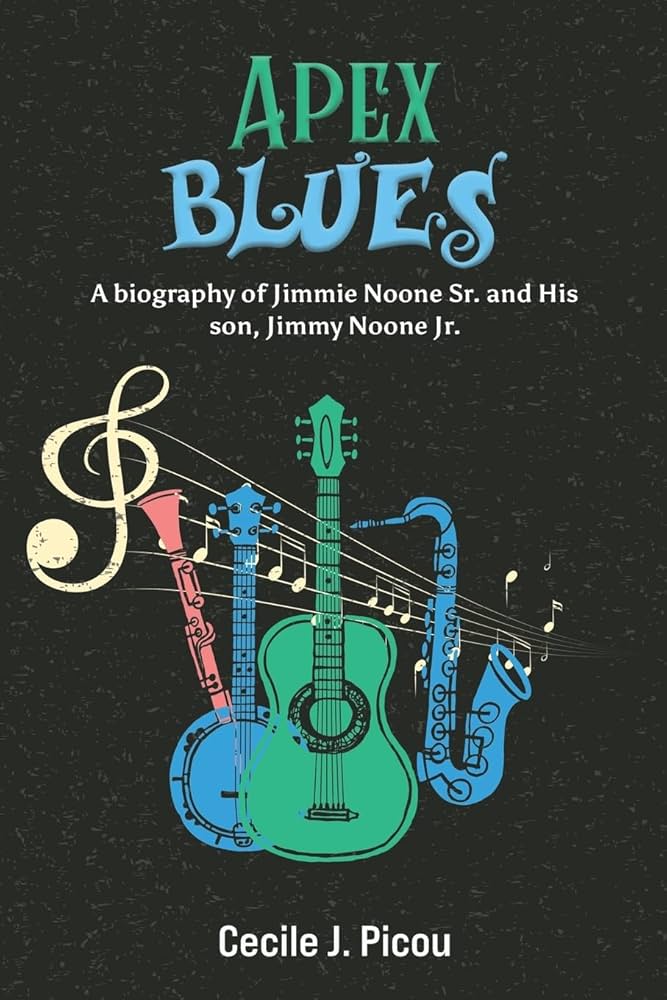 Apex Blues
Apex Blues Cecile J. Picou
232 Pages
ISBN: 979-8891552524
Self Published
2024
Quietly published in 2024 with little to no fanfare, Cecile Picou's dual biography of New Orleans' Jimmie Noone and his son, San Diego's Jimmy Noone Jr., offers some wonderful insights to San Diego's jazz, blues and soul scenes of the 1970s, '80s and '90s.
For fans of the son—who starred with Jeannie and Jimmy Cheatham's Sweet Baby Blues Band before his untimely death—there may be a feeling that there is too little info on the son. Three-quarters of the book is about Noone Sr. And while the father's national and international reputation as an influential pioneer of New Orleans jazz clarinet is more weighty than his son's, the fact remains that Noone Jr. played a prominent role in San Diego's music scene for nearly 20 years.
The book begins with the 1895 birth of Jimmie Noone in New Orleans. Drawing on extensive research at the Tulane jazz archive, the records of the New Orleans Jazz and Heritage Organization, and the memories of the late Noone Jr., Picou provides a fairly detailed account of the life of Noone Sr. Growing up the son of a black woman and a married Irish American man who kept his second family a secret from both his wife and white in-laws, Noone Sr. grew up playing in the bands of the first-generation of jazz musicians in town: Sidney Bechet, Joe King Oliver, Alphonse Picou, Freddie Keppard.
The book carefully follows the budding career of Jimmie Sr. (who was, ironically, also a "junior" as his father was James John Noone), as he parlayed his connections with some of the top musicians in New Orleans into opportunities in Chicago and, later, New York. Anyone interested in the history of jazz and/or popular music in the United States will recognize the larger story arc of the development of early jazz into big band swing, but with numerous new details unique to the Noone story. (The title of the book comes from the name of a Chicago jazz club in the 1920s where Noone Sr. was a member of the house band.)
Jimmy Jr. (or, more accurately, Jimmy III) was five when his father passed at home of a heart attack in 1944. After a comprehensive discography of Noone Sr., we then pick up the thread of Jimmy Jr. in 1958 when he gets out of the Navy and takes a job with the Postal Service. In bullet-point chronology, we get bits and pieces of the life of Noone Jr.—the early marriages, a daughter, gigs with San Diego R&B pioneer Teddy Picou (the father or brother of the author—it's not really clear), and then meeting the Cheathams.
But the Noone Jr. section doesn't get anywhere near the treatment given his father. Given that Picou and Noone were a couple as well as business partners, it's a bit disappointing that we don't get more details on his musical career—particularly the early days. There is a brief mention of Jimmy picking up the organ for his gigs with Picou, but the how or why isn't really explored.
Nor is there a full discography for Noone Jr. While his only recordings as leader are apparently air checks from a live concert broadcast on local public radio shortly before his own passing in 1991—as tragically young as his father when he died—his clarinet and saxophone playing graced the first five albums by the Cheathams, and he also played on two tribute albums to his father: Jimmy Remembers Jimmie with John R.T. Davies (1985) and Hal Smith's Creole Sunshine Orchestra's Do What Ory Say! from the year before. Also, one of the five tracks that Picou mentions Jimmy Jr. recording with Ted Picou in the early 1970s was featured on one of the KGB radio Home Grown albums: "Logan Avenue" from Home Grown IV in 1976 (featuring another San Diego icon, Big Daddy Rucker, on vocals, and Jimmy on organ.)
Still, while fans of Jimmy Jr. may find themselves wishing for more details about his life and music, we're also blessed that Picou didn't allow the perfect to become the enemy of the good. What she has given us is a full-blooded account of Noone Sr.—one of the founding pioneers of jazz in New Orleans—as well as the most complete telling of his son's life to date. It's an important piece of music journalism.
A version of this review was first published in the June 2025 issue of San Diego Troubadour.
Tags
Book Review
Jim Trageser
Self-Published
Jimmie Noone
Jimmy Noone Jr.
Jeannie & Jimmy Cheatham
Sidney Bechet
Joe Oliver
Alphonse Picou
Freddie Keppard
PREVIOUS / NEXT
Support All About Jazz
 All About Jazz has been a pillar of jazz since 1995, championing it as an art form and, more importantly, supporting the musicians who make it. Our enduring commitment has made "AAJ" one of the most culturally important websites of its kind, read by hundreds of thousands of fans, musicians and industry figures every month.
All About Jazz has been a pillar of jazz since 1995, championing it as an art form and, more importantly, supporting the musicians who make it. Our enduring commitment has made "AAJ" one of the most culturally important websites of its kind, read by hundreds of thousands of fans, musicians and industry figures every month.




